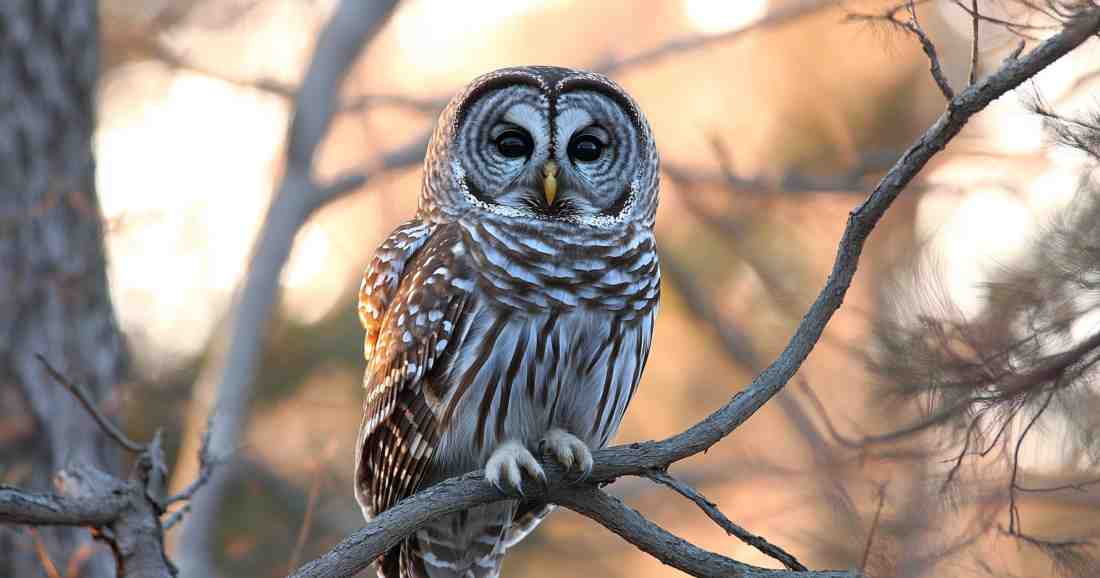Unlock the wisdom and mystery of your personality with the enchanting What Owl Are You Quiz, Discover Your True Nocturnal Spirit. What Owl Are You Quiz helps you uncover which type of owl best reflects your personality, lifestyle, and strengths. Owls, known for their wisdom, keen observation, and silent strength, come in many species, each with unique traits. Are you bold like a Great Horned Owl, mysterious like a Barn Owl, or adaptable like a Screech Owl? This quiz evaluates your habits, social preferences, and decision-making style to reveal your true owl counterpart.
What Defines Owl Personalities?
Owl personalities reflect distinctive characteristics, including observation skills, emotional tendencies, and social habits. Some owls, like the Snowy Owl, symbolize resilience and independence, while others, like the Barred Owl, represent calmness and nurturing. Moreover, an owl’s hunting style, preferred habitat, and daily behavior often align with human personality types. The What Owl Are You Quiz evaluates your lifestyle, decision-making, and emotional approach to match you with your owl spirit.
Exploring Popular Owl Archetypes
Different owl species represent unique personality types, each symbolizing specific strengths and approaches to life:
- Great Horned Owl: Bold, confident, and resilient. This owl symbolizes strength, leadership, and protection.
- Barn Owl: Mysterious, intuitive, and sensitive. Barn Owls value quiet reflection and deep emotional connections.
- Snowy Owl: Independent, patient, and resilient. Snowy Owls thrive in solitude while navigating challenges with calm strength.
- Screech Owl: Adaptable, resourceful, and clever. Screech Owls excel in problem-solving and navigating change.
- Barred Owl: Nurturing, calm, and observant. Barred Owls enjoy peaceful surroundings and close connections.
- Elf Owl: Small, energetic, and playful. Elf Owls embrace life’s lighter side while staying alert and resourceful.
- Long-Eared Owl: Stealthy, quiet, and focused. These owls prefer observing from the shadows while maintaining sharp awareness.
- Burrowing Owl: Social, curious, and adventurous. Burrowing Owls enjoy exploration while staying connected to their community.
This quiz helps identify which owl aligns with your personality and lifestyle.
How Personality Traits Reflect Owl Behavior
Your daily habits often mirror owl behaviors. Are you a natural leader, like the Great Horned Owl, taking charge and protecting others? Or do you prefer quiet observation, like the Barn Owl, navigating life through intuition and sensitivity? Moreover, your approach to challenges—whether adaptable like a Screech Owl or patient like a Snowy Owl—further defines your owl match. This quiz evaluates your lifestyle, emotional tendencies, and decision-making style to reveal your nocturnal spirit.
Social Habits and Environmental Preferences
Owls also reflect social preferences and lifestyle choices. Some, like Burrowing Owls, thrive in communities, while others, like Snowy Owls, prefer solitude. Moreover, adaptable species like Screech Owls can thrive in both rural and urban environments, reflecting flexibility in social and personal settings. This quiz explores how your social habits align with owl dynamics.
Fun Facts About Owl Personalities
Did you know that the Great Horned Owl is known as the “tiger of the sky” for its fearless nature and powerful hunting skills? Moreover, Barn Owls can hear prey under layers of snow or grass, symbolizing heightened intuition. Interestingly, Burrowing Owls live in underground dens and often work together to protect their community. This quiz uncovers more fascinating facts while revealing your owl counterpart.
Practical Insights for Embracing Your Owl Traits
Understanding your owl personality offers valuable self-awareness. If you’re Great Horned Owl-like, embrace leadership while balancing it with empathy. If you’re more like a Barn Owl, nurture your intuitive strength while staying open to social connection. Moreover, recognizing your strengths—whether resilience, adaptability, or calmness—helps you navigate life with clarity and confidence. This quiz provides personalized insights for embracing your owl spirit.
Take the What Owl Are You Quiz Now
Curious to discover your owl counterpart? The What Owl Are You Quiz offers an engaging way to explore your personality through the lens of the owl kingdom. Moreover, it provides practical insights into how your traits shape your approach to life, relationships, and personal growth. Ultimately, this quiz empowers you to celebrate your strengths while connecting with your wise, observant, or adventurous spirit. Take the quiz now and uncover which owl truly represents you!
4o

Owls – FAQ
What are some defining characteristics of owls?
Owls are primarily nocturnal birds of prey known for their distinctive facial discs, large eyes, and silent flight. They have a keen sense of hearing and powerful talons, which make them exceptional hunters. Their ability to rotate their heads up to 270 degrees is another remarkable feature.
How do owls hunt their prey?
Owls hunt primarily at night using their acute sense of hearing and sight. Their eyes are adapted to low-light conditions, allowing them to see in near darkness. They silently swoop down on unsuspecting prey, using their sharp talons to capture and kill small mammals, birds, and insects.
Why are owls considered symbols of wisdom in many cultures?
Owls have been associated with wisdom due to their thoughtful appearance and nocturnal habits. Ancient Greeks revered the owl as the symbol of Athena, the goddess of wisdom. This cultural association has persisted over centuries, with owls often depicted as wise creatures in literature and folklore.
Where can owls typically be found in the wild?
Owls inhabit diverse environments across the globe, from dense forests and open grasslands to deserts and urban areas. Each species has adapted to its specific habitat, but they generally prefer areas where they can easily find prey and suitable nesting sites. Some species are migratory, while others remain in the same area year-round.
What threats do owls face in the modern world?
Owls face several threats, including habitat destruction, climate change, and human interference. Deforestation and urbanization reduce their natural habitats, while pesticides and rodenticides can poison them indirectly. Conservation efforts are crucial to protect these majestic birds and ensure their survival for future generations.
